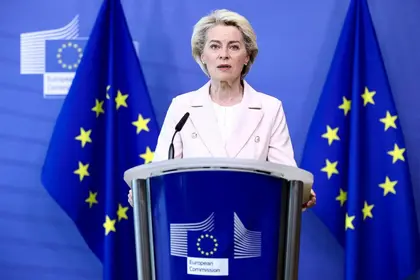EU chief Ursula von der Leyen announced on Thursday, June 28, that the bloc must invest 500 billion euros ($535 billion) over the next decade to strengthen defences.
Von der Leyen estimated that an "additional 500 billion euros" in defence investments are needed over the next ten years but did not provide detailed specifics.
JOIN US ON TELEGRAM
Follow our coverage of the war on the @Kyivpost_official.
"We didn't see spreadsheets or details; this is pie-in-the-sky money," commented an EU diplomat.
How will the EU finance this investment? It remains unclear. Options include national spending or joint EU defense bonds. Some countries, such as France and Estonia, support eurobonds, while Germany and the Netherlands oppose them.
"None of these options are easy, but all must be seriously considered with political will," said von der Leyen.
EU countries have increased their defence spending since Russia's annexation of Crimea in 2014, with even more acceleration after the invasion of Ukraine in 2022.
Many EU countries now meet NATO's target of spending two per cent of GDP on defence, with total EU defence spending reaching 240 billion euros in 2022.
Despite this, the growth of the EU's defence spending has lagged behind that of China and Russia. From 1999 to 2021, EU defence spending increased by 20 per cent, while China’s rose by nearly 600 per cent and Russia's by almost 300 per cent.
To further support defence industries, the EU is considering appointing a commissioner dedicated to this issue.

Luxury Western Goods Line Russian Stores, Three Years Into Sanctions
You can also highlight the text and press Ctrl + Enter






